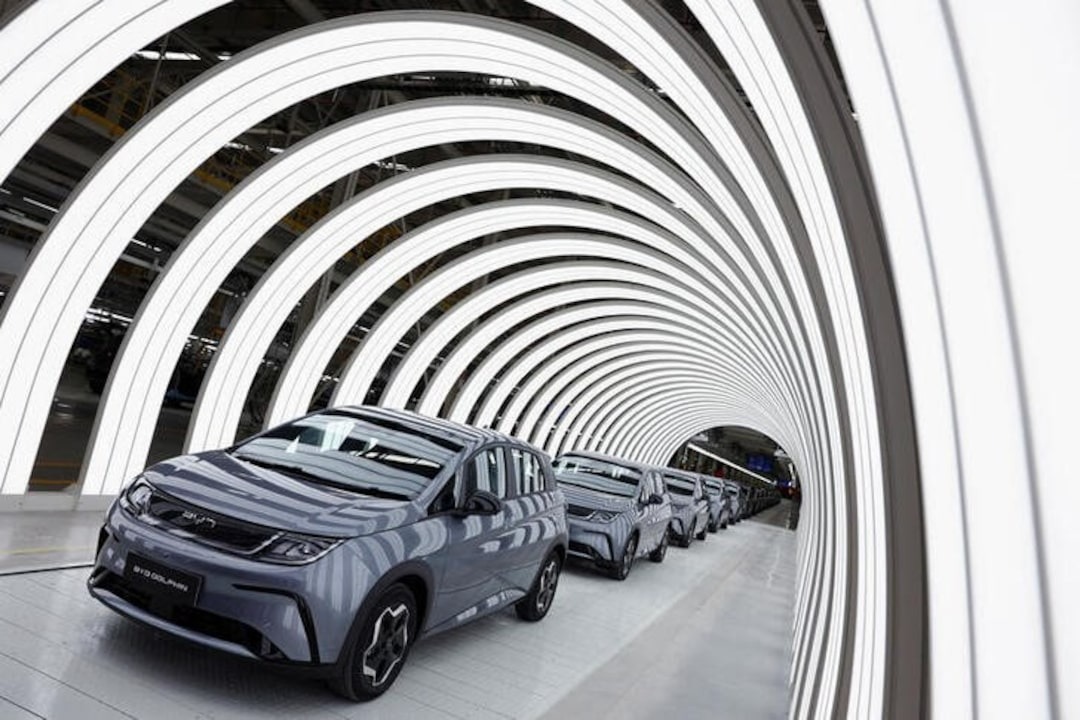A large portion of last year's international investment (around 74%) went towards building battery factories. However, investment in assembly plants "is also increasing rapidly," according to an August 18 report by consulting firm Rhodium Group.
According to the report, domestic investment in China's electric vehicle sector decreased from 41 billion USD in 2023 to 15 billion USD last year. This figure peaked at over 90 billion USD in 2022.
Meanwhile, overseas investment has historically been much lower. However, in 2024, it surpassed domestic investment for the first time. Rhodium did not disclose the exact figures.
This shift comes as Chinese automakers face fierce domestic competition and high export tariffs. Increased overseas investment could help these companies gain support from foreign governments as they expand their markets.
 |
BYD electric vehicles inside the factory in Rayong (Thailand). Photo: Reuters |
BYD electric vehicles inside the factory in Rayong (Thailand). Photo: Reuters
"Increasing policy barriers in many places, such as the European Union (EU), will force many Chinese companies to establish local production facilities," the Rhodium report states.
Another report released by Rhodium Group in late July revealed that in Quarter II, automobiles were the second most active sector for Chinese overseas investment, following materials and metals.
"We observed more activity than expected among electric vehicle component manufacturers. These companies made 8 transactions worth over 100 million USD. Leading the way was battery company GEM's plan to invest 293 million USD in expanding its ternary battery precursor production facility in Indonesia," the July report stated.
Several overseas factory projects announced a few years ago have begun operations. Great Wall Motor announced last week the opening of its first factory in Brazil. The company is reportedly considering building another factory in the region and will make a decision by the middle of next year.
BYD also began production at its Brazilian factory in July. In the first 7 months of the year, the Chinese electric vehicle giant sold over 545,000 vehicles globally, surpassing its total sales for last year (417,000 vehicles), according to CNBC calculations.
In June, Chinese battery maker Envision also announced the official start of production at its first factory in France.
However, the Rhodium report only considers completed overseas projects. According to the report, only about 25% of planned international production by the Chinese electric vehicle industry has been realized. This rate is 45% within China. Rhodium notes that overseas projects have twice the risk of cancellation compared to domestic ones.
"Chinese companies will also have to deal with Beijing's growing concerns about the risk of technology leaks and job losses. This could lead officials to tighten overseas investment in strategic sectors," the report states.
Ha Thu (according to Reuters, CNBC)












